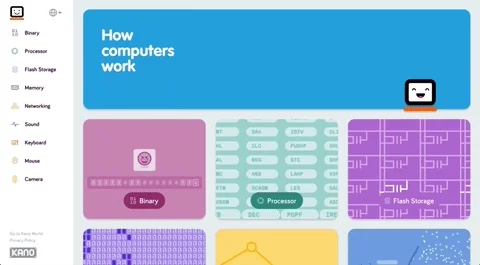Looking for a career in tech but don't know where to start?
Information technology (IT) programs teach students about the business and technology demands of businesses, with a concentration on computers and software for data storage, processing, protection, transmission, and retrieval.
They also concentrate on technical infrastructure that can keep a company's technology updated.
If you're wondering, "What can I do with an information technology degree?", you'll need to learn more about the career paths that will be open to you after you graduate.
 Photo by Christina @ wocintechchat.com on Unsplash
Photo by Christina @ wocintechchat.com on UnsplashWhat Do IT Degrees Teach You?

Most information technology degrees train you to:
develop, support, and manage information systems
understand and implement software such as operating systems, browsers, and apps
work with hardware systems like processors, hard disks, etc.
These are some essential skills you'll learn in an IT program:
Troubleshooting to find a systematic method for identifying and resolving problems.
Communication & collaboration to ensure clear explanations to team members and warn of security risks to people not working in IT.
Critical thinking to analyze, evaluate, and develop solutions to tackle challenges.
Project management to successfully plan and execute projects from start to finish.
Programming languages like Python, JavaScript, and R to understand computer language.
Database management to understand databases and the way they function.
Career Options
 Photo by Jason Goodman on Unsplash
Photo by Jason Goodman on UnsplashHere are some specialization options in the IT industry:
Cybersecurity professionals protect internet-connected systems from threats and unauthorized access.
A security analyst makes up to $102,600 USD per year.
Network and systems administrators are responsible for the daily operation of computer networks.
A network administrator earns around $80,600 USD per year
Cloud computing allows delivery of services over the internet.
A cloud architect earns around $104,590 USD per year.
Artificial intelligence simulates human intelligence processes using computer systems.
An AI specialist earns around $151,994 USD per year.
Data scientists utilize analytical tools for gaining valuable insights within organizational databases.
A data scientist earns around $100,910 USD per year.
Computer & software programmers develop computer programs and applications using different programming languages.
A software developer earns around $93,000 USD per year.

If you're more interested in computer science than IT, check out this Byte: What can I do with a computer science degree?
Meet Alaina
 Photo by Christina @ wocintechchat.com on Unsplash
Photo by Christina @ wocintechchat.com on UnsplashAlaina is looking to switch her career from human resources to IT. She did a lot of research considering the different options she has in terms of certifications, internships, and volunteering. She took a course and learned a programming language called Python.
Python allows her to develop programs that solve problems in many organizations. It helped her build some elite research skills that can also be used in other tech jobs. Her next step is to apply for entry-level jobs to break into the IT field.
Quiz
With her recently updated resume and her current skillset, what job profile would best suit Alaina?
Take Action
 Photo by Domenico Loia on Unsplash
Photo by Domenico Loia on UnsplashHere are some additional tips for choosing an IT career path:
Your feedback matters to us.
This Byte helped me better understand the topic.
